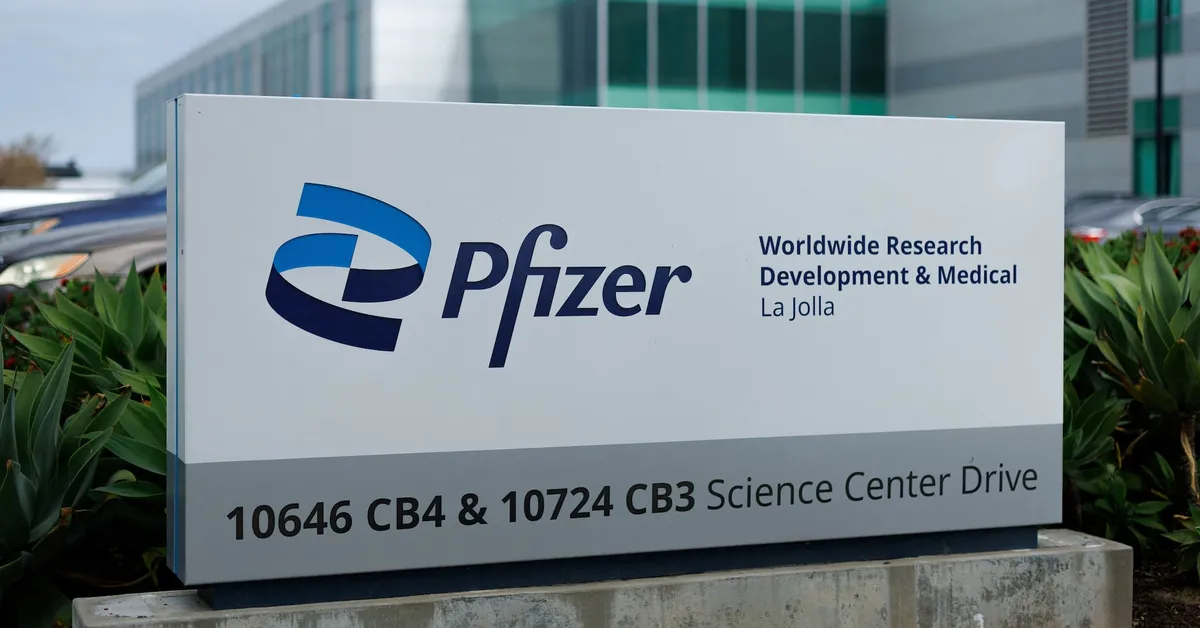
In a recent statement, former President Donald Trump expressed his expectation that other drug manufacturers will follow Pfizer in reducing the prices of their medications. U.S. patients currently face exorbitant costs for prescription medicines, paying nearly three times more than their counterparts in other developed nations. Trump has been vocal in his efforts to pressure drugmakers to align their prices with those paid internationally, declaring that the United States will no longer subsidize the healthcare of the rest of the world.
Speaking at an event in the Oval Office, Trump was joined by Pfizer CEO Albert Bourla and Health Secretary Robert F. Kennedy Jr., among others. During this meeting, Pfizer became the first pharmaceutical company to announce a significant pricing initiative. In July, Trump sent letters to 17 leading drug companies demanding they reduce their prices to match those seen overseas—a strategy he refers to as most favored nation pricing. He requested that these companies provide binding commitments by September 29.
The White House is also set to launch a direct-to-consumer website, TrumpRx, aimed at enabling Americans to purchase medications more affordably. Pfizer will be among the first to offer its drugs directly to consumers via this platform. According to promotional materials displayed at the event, Pfizer plans to sell medications such as the rheumatoid arthritis drug Xeljanz, migraine treatment Zavzpret, dermatitis medication Eucrisa, and post-menopausal osteoporosis drug Duavee at discounts ranging from 40% to 85%.
The rising costs of medications have become a critical issue for many Americans. Recent analyses indicate that the launch prices of new drugs in the United States have surged dramatically in recent years, with many medications entering the market at annual prices exceeding hundreds of thousands of dollars. A Reuters examination revealed that the median price for newly launched pharmaceuticals more than doubled in the past year, soaring to $370,000 in 2022 from $180,000 in 2021.
More than 70 million individuals are covered by Medicaid, the federal and state program for low-income individuals, while an additional 65 million are enrolled in Medicare, which serves those aged 65 and older or individuals with disabilities. Notably, these programs were not included in the recent announcements regarding price reductions.
In his address, Bourla also unveiled plans for a $70 billion investment in research and development, along with a commitment to domestic manufacturing. "We are ready to unleash our investment portfolio in this country," he stated, highlighting that the president has granted Pfizer a three-year grace period from the imposition of 232 tariffs on pharmaceuticals, provided they establish manufacturing facilities in the U.S.
On September 25, Trump announced a potential 100% tariff on imported branded or patented pharmaceutical products effective October 1, unless the companies involved are actively building manufacturing plants in the United States. This announcement follows a national security investigation, known as the 232 probe, aimed at determining appropriate tariffs for the pharmaceutical industry.
As the situation unfolds, the impact of these initiatives on drug pricing and healthcare accessibility for Americans remains to be seen.